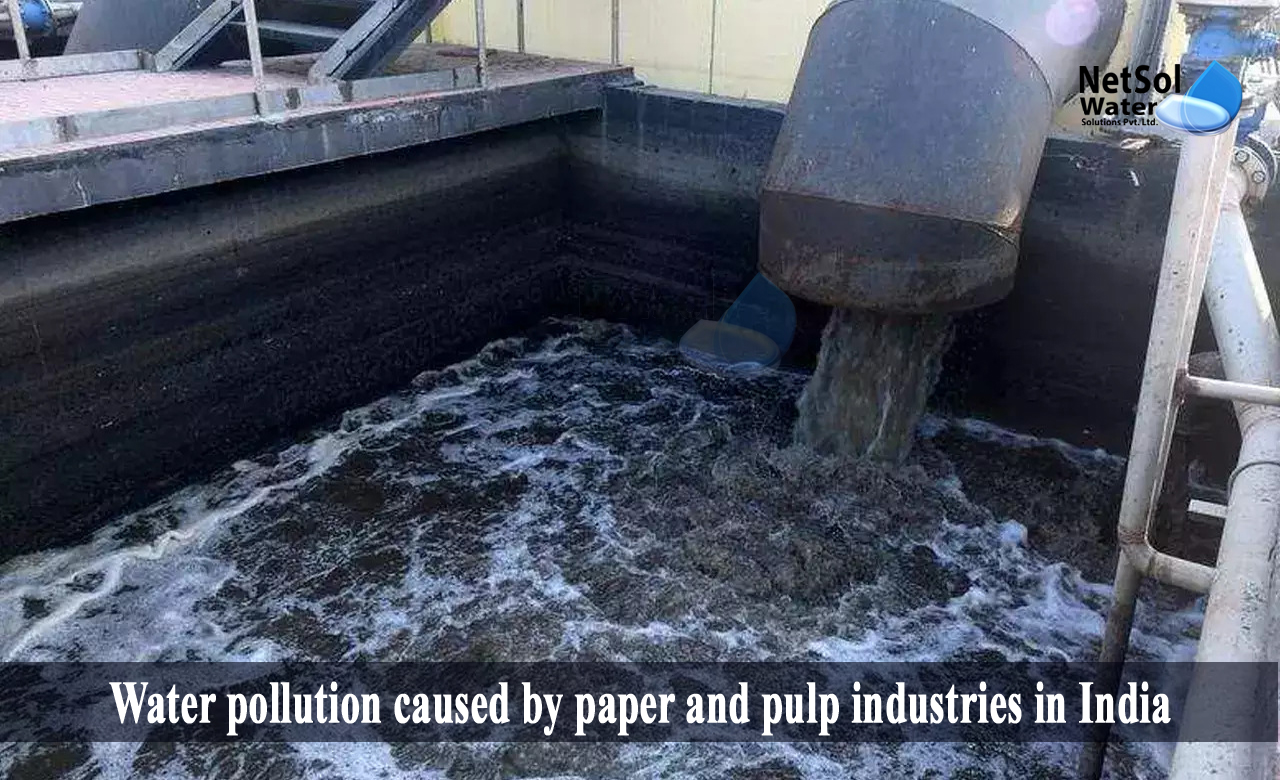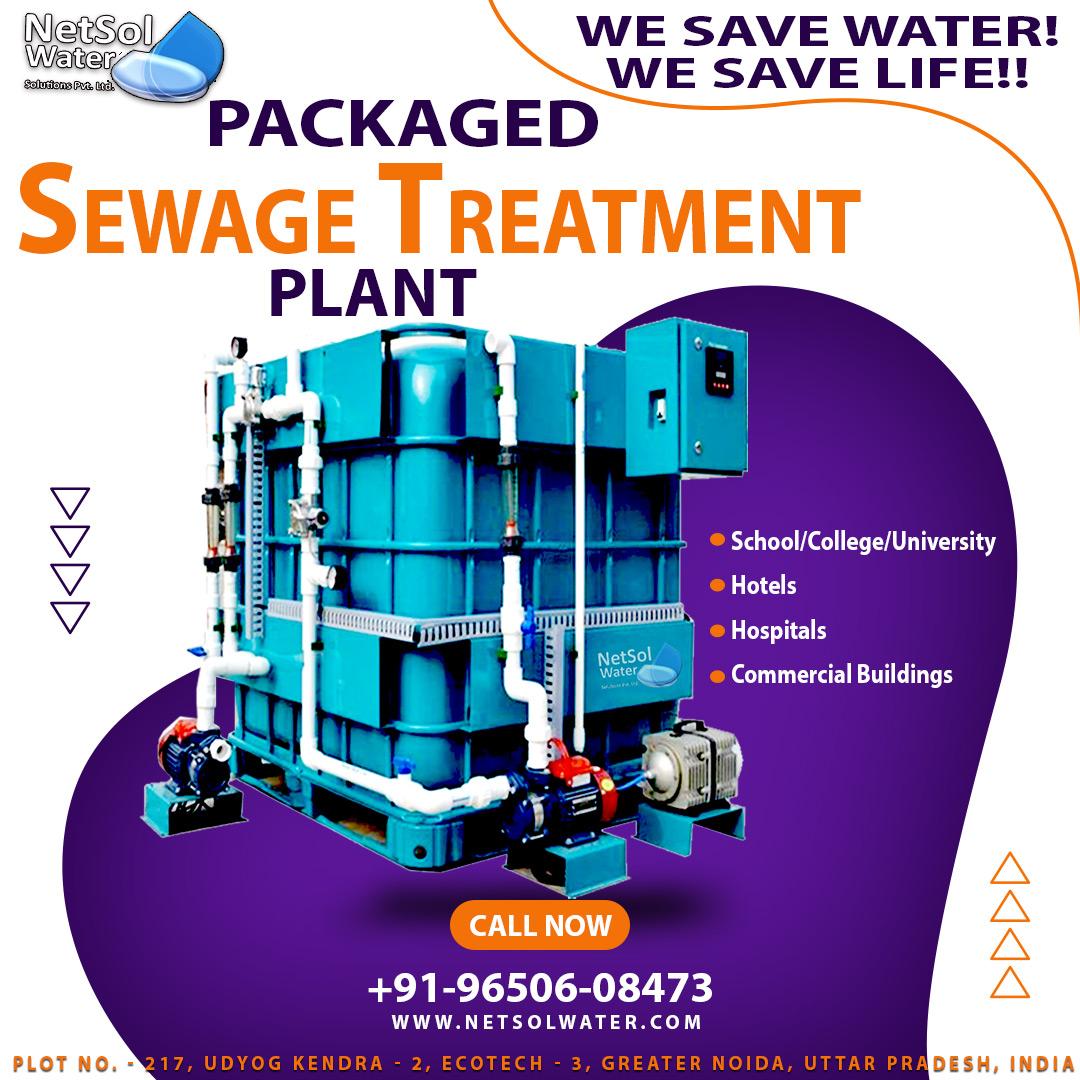The manufacturing process consumes a large amount of fresh water, the majority of which is discarded as wastewater. The pulp and paper industry are one of the most significant and well-known sources of industrial pollution.
Let’s see the effect of water pollution caused by paper and pulp industries in India, and their effective treatment.
Wastewater released by the paper and pulp industries
The pulp and paper industries emit wastewater that contains highly complex organic and inorganic pollutants. These pollutants are primarily discharged during the pulping and bleaching processes, in the paper manufacturing process.
Untreated wastewater from pulp and paper mills is commonly discharged into bodies of water, causing pollution of the water. The effluent gives water a brown colour that can be seen from a long distance. The effluents contain lignin compounds and have high biological and chemical oxygen demands (BOD and COD).
How to solve Water pollution caused by paper and pulp industries?
· Sedimentation
It is the most cost-effective method of separating solids from liquids. Effluent treatment processes achieve high efficiency when the solid substances suspended in the effluents, settle as completely as possible in a sedimentation tank, and settled sludge is removed from the sedimentation tank.
In the paper industry, sedimentation equipment with lamella-shaped passages is used, particularly for effluents with high fibre concentrations.
· Anaerobic digestion
Anaerobic treatment is most commonly used for effluents from recycle paper mills, particularly during containerboard production.
It is also possible to treat wastewater from mechanical pulping (peroxide bleached), semi-chemical pulping, and sulphite evaporator condensates.
· Aerobic technology
Aerobic microorganisms require oxygen to function metabolically. Special aeration equipment provides oxygen to the effluent in the form of air, during effluent treatment.
Aerobic treatment enables the complete biological decomposition of paper mill effluents. These plants are more stable and less sensitive to changes.
· Electrodialysis
Electrodialysis is a method of electrochemical membrane separation for ionic solutions, which has been used in industry for decades.
It can be used to separate and concentrate salts, acids, and bases from aqueous solutions, as well as to separate monovalent ions from multivalent ions, and ionic compounds from uncharged molecules.
· Ozone/AOP technologies
Today, ozone and UV are well known and proven in the field of water and waste water treatment, with ozone as a multifunctional powerful oxidant and UV as the best available disinfection technique in terms of treatment results, plant design, and cost. The primary goal of these combined processes is to increase the potential for oxidation.
For removing recalcitrant and anthropogenic substances from wastewater, combined chemical (AOP) and biological oxidation processes are well-known. Furthermore, ozone de-colorization has already been established as a method of polishing biologically treated effluents.
· Membrane technologies (UF, NF, RO)
Membrane treatment in the P&P industry optimizes loop closure and thus helps to reduce, both fresh water intake and wastewater treatment.
Other goals of membrane processes include: improved product quality due to lower loop water pollution, re-use of treated effluent in production, recovery of valuable substances such as coating pigments, and reduced environmental impact due to improved effluent quality.
Some mills have already installed full-scale membrane filtration of pulp and paper effluents.
· MBR processes
The MBR (membrane bioreactor) process is gaining popularity in municipal and industrial wastewater treatment.
MBR is used in the paper industry as an end-of-pipe technology and a process-integrated measure, to reduce the concentration of harmful substances in the water circuit. MBR is a sustainable technology for industrial wastewater treatment, particularly in terms of effluent quality and economics.
Conclusion
Papermaking is a complex process that involves several processing steps to convert wood into paper products.
In addition to the actual papermaking process, on-line analytical measurements benefit supporting areas such as wastewater treatment, recovery boiler operation, steam production, and cooling towers.
How can we assist?
Netsol Water has aided in the resolution of hundreds of water-related problems, by utilizing a wide range of specialized water treatment and wastewater treatment technologies, in paper and pulp industries of India.




